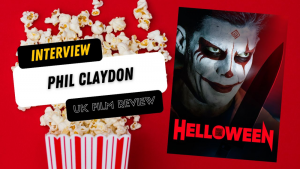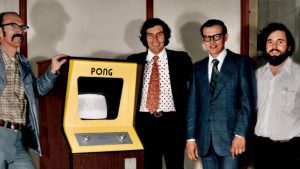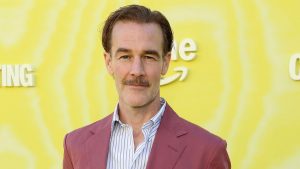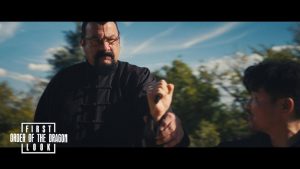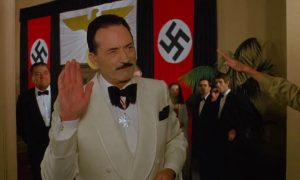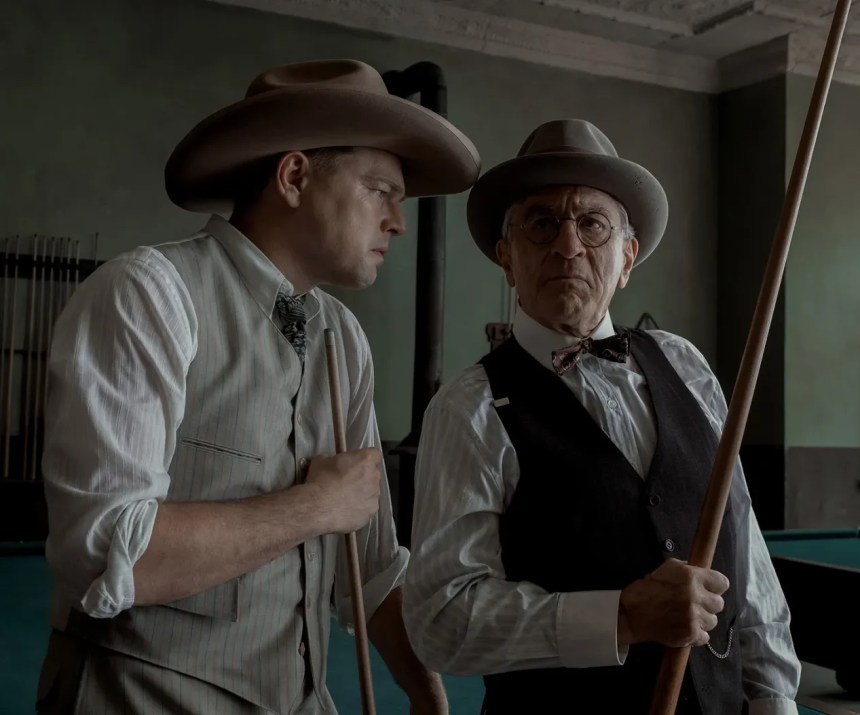
CAN YOU SEE THE WOLF IN THE PICTURE?
Legendary and famed director Martin Scorsese as always had a special “affinity” towards crime dramas; making his mark in Hollywood by the ways and means of directing narratives mobsters and gangsters. Tales of intrigue, powerful men, violence, turf wars, and family dynamics within organized crime organizations has been a poignant fascination to this director, who usually gravitates in capturing this sort of “crime / mobster” genre. This includes several iconic features films that Scorsese has developed, including 1990’s Goodfellas, 1995’s Casino, 2002’s Gangs of New York,, 2006’s The Departed, and 2019’s The Irishman. Of course, Scorsese has also done non-crime dramas motion pictures, including 1980’s Raging Bull, 1993’s The Age of Innocence, 2004’s Aviator, and 2011’s Hugo, that have certainly given him his notoriety and the respect from his peers in Tinseltown as well moviegoers everywhere as an acclaimed movie director, but his true passion seems to be crime drama endeavors. Now, director Martin Scorsese and Paramount Pictures and Apple TV present the latest offering from the acclaimed director with the release of Killers of the Flower Moon. Does the movie find another cinematic achievement from the fame director or is it a bloated production that plays to Scorsese’s passion and nothing else?
THE STORY
At the turn of the 20th Century, the land of the Osage Nation in Oklahoma is rich with oil, creating an obscene generation of wealthy Native Americans overnight, which has attracted to prospects and fortune seekers to venture to the Midwest to find a future therein. One such individual is found in Ernest Burkhart (Leonardo DiCaprio), a recent returned WWI soldier, who sojourns to Oklahoma by invitation of his uncle, William King Hale (Robert De Niro), a rich landowner in the Osage Hills area who has mastered the art of benevolent generosity towards the nearby indigenous people. Welcoming his nephew into the community, William seeks to break the Osage Nation from within, encouraging marriage to their women while organizing murders to redirect the lines of inheritance towards his benefit. In time, Ernest, at the behest of William, finds a match to one such a wealthy woman in the form of Mollie (Lily Gladstone), soon winning her heart and her hand in marriage, beginning their long domestic journey of martial partnership with rich and sickly woman while secretly plotting with his uncle’s schemes. As the years past, Ernest executes William’s masterplan, with a series of brutal killings carried out by an interwoven network of local men, helping the cunning kingpin acquire control of Native American land and financial superiority over the community.
THE GOOD / THE BAD
Borrowing some of my lines from my review of The Irishman…. You guys will probably laugh at me for this, but I actually didn’t know Martin Scorsese was until I saw 2004’s A Shark’s Tale. Of course, I did have seeing several of his other works prior to this movie, but I really didn’t put a name to the face until saw him as his Shark’s Tale character of Mr. Sykes (capturing Scorsese’s eyebrows in his character). I know…laugh it up. Now, moving past that, Scorsese deserves a lot of praise for the movies he’s directed and has worked some of the top names of Hollywood acting talents, including Leonardo DiCaprio, Matt Damon, Robert De Niro, Gregory Peck, Jack Nicholson, Michelle Pfeiffer, and Daniel Day-Lewis just to name a few. As mentioned above, Scorsese’s “bread and butter” is his crime drama endeavors, with some of my personal favorites being Goodfellas and The Departed; both films are highly entertaining and well-made. Although, while many praised his work for The Irishman, I thought that the movie was just okay. I give credit where credit is due and it’s solid feature, but not as “hyped up” as some were making out to be. Also, as a sidenote, Scorsese did produce the HBO’s gangster series Boardwalk Empire (if you haven’t seeing it yet….be sure to check it out. I highly recommended it.). That being said, Scorsese’s other projects such as Taxi Driver and Raging Bull are also quite respected in motion pictures as well as Gangs of New York and The Age of Innocence. Plus, I do have to admit that I did like Hugo as it was sort of Scorsese’s personal “love letter” to cinema and movies. Thus, whether you love him or hate him (mostly with some people disliking him for recent his comment against superhero movies), director Martin Scorsese has certainly made his stamp on Hollywood and on the filmmaking industry.
This brings me back around to talking about Killers of the Flower Moon, a 2023 Western crime drama feature and the latest film offered from director Martin Scorsese. I can’t remember when this project was officially announced, but I do remember hearing some talk about the movie sometimes during 2022, especially towards the end of the year when everyone was making their “most anticipated films of 2023” list, which included Martin Scorsese’s next film Killers of the Flower Moon. From there, I continued to hear snippets here and there about the upcoming picture, but I actually never saw the film’s movie trailer. It’s true…. not online (even though I heard about it when it was released on the web) nor did I see it during the “coming attractions” previews when I went to my local movie theater. All that I knew about the project was that Scorsese was directing it, it would star several of familiar leading acting talents (DiCaprio and De Niro), and that it involved Native Americans community during the turning of the 20th century era. As mentioned, Scorsese is a famous director and, while he doesn’t make as many films as he used to, I was more than curious to see how his latest film would shake up the recent movie landscape of releases, especially with the film strikes going on and box office results have been limp….to say the least. So, my interest in seeing this movie was definitely there as I decided to check out the movie (mostly completely blind as to what I was expecting from it) during its opening wekkened….to see what all the hype was for this particular historical drama project from Scorsese. I also decided to wait a few days after it was released to fully digest what I viewed and to make sure that my thoughts were clear and precise on the film. So…. what did I think of it? Well, it was good, but not a masterpiece as some are calling it. In truth, Martin Scorsese’s Killers of the Flower Moon is an ambitious project that carries a large scope and cinematics in its depictions of a violent affair in American history, but is held back by long winded exploration and lengthy runtime. It’s definitely a poignant film to be studied within its background story, yet examining it through its entirely uncovers that it’s not as riveting as intended.
As stated, Killers of the Flower Moon (I’ll abbreviate it to “Flower Moon” for most of my review) is directed by Scorsese, with the director approaching the movie with sense of respect for the Native American cultural as well as having that “passion project” feeling of integrity. While Scorsese himself has always been known for his gangster crime dramas, it’s interesting to see the famed director step outside his comfort zone for what many would consider a “historical epic” endeavor for this picture. Of course, there are flourishes of criminal organization tactics and motifs that are easily visible in Flower Moon, which (naturally) do play to the director’s signature style of storytelling. Thus, I can easily see why Scorsese was interested in this movie as well as his personal attachment of bring this “passion project” to life. Perhaps an interesting notion is that Scorsese, much like his previous work, doesn’t make the project unnecessarily bombastic with blockbuster flourishes. Hollywood studios have sometimes made historical epics (visioned and framed) with a sense of grandiosity and large in scale for mass appeal to audiences. Flower Moon, while both historical piece and epic drama in its own right, never delves into the blockbuster tentpole of grandeur, which is kind of a good thing, for Scorsese makes the feature focus more on the moving pieces of its character rather than the action. More to the point, Flower Moon is, more or less, a character study amongst its main players (more on that below) and on the primary setting / time period of which the narrative takes place in. It’s kind of a little bit of crime drama that is mixed with a CSI underlay and a Law & Order tepid feel that is all wrapped together in Western aesthetic.
In truth, Flower Moon plays out like a historical novel, of which it was adapted for the screen by David Grann of the book of the same name, with the project being a sprawling (and quite lengthy) epic that is worth of Scorsese’s trademark name and films he’s directed. Like a lot of his past feature endeavors, Scorsese is deeply rooted within human nature, translating the ambiguity of power, greed, and control into a cinematic tale that is woven together with deep layers of moral ambiguity and the fight for survival. It is also because the movie’s story is based on real life events, with the movie’s narrative examining the rise of the Osage Indians tribes of their unexpected wealth from oil reserves on their land and the sudden and unanswered murders that occur during the 1920s. This premise is a recipe for some good, old-fashioned character study of people and their individualistic motivations, with the movie’s story gazing into the eyes of several key players to showcase that opaque nature of the human condition. Again, this is definitely right up Scorsese’s alley and seems the chance to relish such “grit and bite” into the feature’s presentation. Naturally, this brings up the abusive and hostile past actions of white settlers showing force against Native American and, while the revelations made in the film by not be at the top tier of new stories of late, the extrapolation of such heavy material is quite appropriately weighed and measure in the film; a dark blotch of American history in greed and somewhat white supremacy towards indigenous people.
With that in mind, Scorsese shapes the movie towards a sense of respect, preserving the main bulk of the story with honor and integrity and translating the project into something that keeps to his traditional style of filmmaking. Of course, the writing for the feature is sort of like the “bread and butter” for the production, with Flower Moon’s screenplay being adapted by the director himself along with Eric Roth. This makes a lot of what works in the movie quite well, especially since the whole endeavor is keener of focusing on character development and dialogue driven scenes rather than action. Of course, there is action in the film, yet that takes more of a backseat (more on that below), but the movie’s writing is quite sharp and written / presented quite well, which is aided greatly by the acting talent involved in this feature. Whether one thinks of this movie is a masterpiece or just an good movie, there is no denying the fact that Scorsese does quite an admirable job for his so-called “passion project”, which gives Flower Moon the needed extra cinematic push of showcasing the acclaimed director’s skills and storytelling helming to make the endeavor feel like a motion picture of yesteryear; a call back to earlier days of movies where large focus is put on character and story rather than flashy showmanship or favorable trends in pop culture society.
For it’s presentation, Flower Moon is definitely an ambitious visual motion picture that some has skilled as Scorsese could undertake and present in such cinematic way. On this platform, I think the film is probably his most visually stunning picture to date, with a lot of dynamic theatrics that are juxtapose against the gritty realism of the movie’s background. Of course, with the project considered to a “western” period piece drama, Flower Moon does indeed fit that moniker….to the letter, with Scorsese’s visioning Osage Nation in such a realistic way that looks like it has been “lived through” showing both grit, grime, and sometimes vibrant setting that places with famed Oklahoma area. Old buildings, dirt roads, and Native American reservations all look and feel appropriate for the film’s time period and never feels staged or cookie cutter within those said background nuances. Heck, what makes the movie feel even more authentic is that Scorsese and his team utilized the actual Osage County location for the feature’s principal photography as well as some of the Native Americans people that live there. Thus, the feature’s “behind the scenes” key players, including Jack Fisk (production design), Adam Willis (set decorations), Jacqueline West (costume design), and the entire art department for their quality efforts in bringing the Osage Nation (community and nearby vicinities) come to life in Scorsese’s vision. In addition, the cinematography work by Rodrigo Prieto does quite an impressive job and gives the feature that extra “cinematic” feel through its dynamic usage of camera angles and capturing images in such a striking way. Lastly, the film’s score, which was composed by Robbie Robertson, is pretty good and helps build upon some of the movie’s inner turmoil portions, including large dramatic pieces as well as quieter dialogue driven moments. All in all, a good soundtrack that equally measure up to the feature’s ambitions.
Unfortunately, Flower Moon doesn’t exactly hold the same type of cinematic pedigree as some of Scorsese’s past endeavors, with the project having several major points of criticism that holds the presentation back from reaching such a lofty goal. How so? Well, for starters, the biggest culprit that many can agree on is the simple fact that the movie is far too long than what it needs to be. With a runtime of 206 minutes (three hours and twenty-six minutes), Flower Moon is indeed quite a lengthy viewing experience, which is definitely makes the project an equally ambitious endeavor right from the get-go and matches the same cinematic integrity that Scorsese is known for. However, while that extra runtime definitely has its benefits of fleshing out characters and the background story explanations, it actually hinders the feature more than helps it. Much like Scorsese’s last project The Irishman, Flower Moon meanders way too long than intended and quite frankly overstays its welcome, especially in the latter half. Yes, there is some good parts in the third act of the feature, especially when a lot of the pieces are finally put into place and realizations of conclusion are brought to the camera’s forefront of attention, yet there are still huge chunks of the movie where the story languished way too much on repeating itself and showing redundant scenes. To be fair, the acting in the third act is top notch, but the story itself drags on and on, further developing nothing that we (as the viewers) already know and repeating itself for character interest. Even beyond that, elements in the middle portion (the second act) of the movie feel bloated with several superfluous subplots and character details that could’ve been easily trimmed down severely or removed from the final cut altogether. In truth, this project could’ve worked better as a miniseries of Netflix or some other streaming platform instead of a motion picture, which would’ve broken up the long runtime of Flower Moon and give viewers a sort of “breather” to fully digest such storytelling drama. In the end, there is a lot of excess in the movie and, while Scorsese is talented, the end result is a film that is far too long for its own good.
In conjunction with this notion, Flower Moon is sadly quite boring, which is mostly due to the elongated runtime of the feature. Yes, Scorsese’s direction is sound, the presentation is solid, and the writing is sharp, but the movie itself is rather monotonous at times, especially since a lot of the narrative meanders far too much in unnecessary details. Of course, there is a story to be told, but it’s not exactly the most riveting and entertaining, which may be partly due to the subject matter of the picture. There’s almost like a depressing storm cloud that settles in and becomes a rather bleak experience in a few areas throughout the movie. Again, this is mostly due to the feature’s story and the presentation of how events unfold, but, much like the old saying “misery loves company” as Flower Moon straps its viewers into a motion picture that’s more like a depressing melodrama. I figured that this was going to be a little bit like this, but not as much as the film has in its final cut. This also make the feature have some sluggish pacing as the action in Flower Moon is light and in short supply, which doesn’t help build tension in some of the more crucial parts. There’s just an inconsistent nature of the film, with too many ups and downs of sequences of cineamtic prose and superfluous projections, which causes Flower Moon to have a rather mundane boring feeling (more often than not) and sometimes cold / distant.
The cast in Flower Moon is indeed a strong attribute that Scorsese and his team have enlisted on this latest project. Like a lot of directors out there, Scorsese picks a few familiar talents that he has previously worked on past endeavors as well as many acting talents involved on this feature wanting the chance to be a part of a “Scorsese movie”. The combination result is something that ultimately works, with most (if not all) delivering some solid performances across the board. Yet, at the same time, I felt that some of these same performances are a bit “hyped up” and not as captivating as intended. While there are a lot of talent that have participate with this movie, the story mostly focuses on three primary characters for its lead, with the talents of actors Leonardo DiCaprio and Robert De Niro and actress Lilly Gladstone leading the charge as Ernest Burkhart, William King Hale, and Mollie Kyle. For his part, DiCaprio, who is known for his roles in Titanic, The Departed, and Inception, has certainly proven himself to be a respectable leading actor throughout his career, producing and performing several iconic historical individuals in movies as well as few original characters. He’s definitely a skilled actor, with most (if not all) of his performances being noted and capturing the classic “Oscar” worthy notion. Thus, having him as the lead character of Ernest Burkhart in Flower Moon is sure fit for DiCaprio, especially since he partners with Scorsese once again. The character itself is interesting, with his introduction showing a man whose has experienced war yet still naïve to his new surroundings as he uncle takes him underneath his wing and shows his seedy underbelly empire within the Osage Nation. It’s definitely a “juicy” part to play, with DiCaprio up to the task to make the character dynamic and dilemma found within Ernest for a solid performance. Perhaps my one downside is that I feel that (again) his performance is a bit “overhyped”. To be sure, DiCaprio is great as Ernest, but it’s not exactly the quintessential role he’s played in his acting career. For me, I think his portrayals of Jack Dawson in Titanic, Gatsby in The Great Gatsby, and Howard Hughes in Aviator were better. Still, there is no doubt about it that DiCaprio gives a fine portrayal of the character of Ernest Burkhart in the movie.
After DiCaprio, De Niro, who is known for his roles in Taxi Driver, Raging Bull, and Cape Fear, takes the spotlight as the most “seasoned” actor on this project and shows off his theatrical talents (and presence) as William “King” Hale, Ernest’s powerful uncle that commands a lot of respect (and wealth) in the community. In truth, William is almost “tailored made” for De Niro to play as he easily slides into the role with grace and dignity. As a whole, the character of William is somewhat interesting as he acts more like a “snake” in the garden of Osage Nation and how he maneuvers everyone as if they were pawns in a chess game. Although, there is really nothing knew that De Niro brings to the table as William Hale. He’s good in the role. Heck, probably the most skilled actor in the film to boot. However, there isn’t much that De Niro brings to the character that he’s already previously done before. It’s a classic villain crime kingpin and, while De Niro’s presence is incredible, it’s still nothing new or creatively done, especially in his narrative progression for his character in the story. Still, it was great to see De Niro reteaming with Scorsese for another semi-memorable character.
Behind those two recognizable talents, Gladstone, who is known for Certain Woman, Billions, and Winter in the Blood, is a bit of the unfamiliar one of these three, with the actress not exactly being the household name or that much recognizable. It is for that reason why I think she shines the best of the three, with her performance being both steadfast and intriguing. To be sure, the character of Mollie is somewhat of a fixated point of interest in the film, with her POV (point of view) being a way of connecting us (the viewers) to the horrors that the Native American people endure with their domestic partners and how no one is really doing anything about it. Thus, Gladstone’s performances makes a strong introduction with that notion in my mind and is quite confident her role as an actress, especially when paired on-screen with DiCaprio and De Niro. In truth, she’s actually my favorite character in the movie. That being said, despite her character having such a solid opening, Mollie sort of gets pushed aside in the latter half of the narrative, which is a bit perplexing. I understand why, but it sort of diminishes her character in the movie as if the writers didn’t care much about what became of Mollie; redirecting the focus on the crime drama aspect. Thus, this leaves Mollie a rather bedridden character and pushed to the backburner. Still, regardless of that, Gladstone is quite palpable as Mollie and makes for one of the interesting and dynamic characters in the feature
The rest of the cast, including actor Jesse Plemons (The Power of the Dog and Game Night) as BOI agent that is investigating the recent string of murders in Osage Nation Tome White, actor Brendan Fraser (The Mummy and The Whale) as attorney W.S. Hamilton, actor John Lithgow (The Crown and Dexter) as Prosecutor Peter Leaward, actress Cara Jade Myers (Rutherford Falls and This Is Us) as Mollie’s sister Anna Brown, actress JaNae Collins (Fukry and Rutherford Falls) as Mollie’s second sister Reta, actress Jillian Dion (Legion and Motherland: Fort Salem) as Mollie’s third sister Minnie, actress Tantoo Cardinal (Dances with Wolves and Wind River) as Mollie’s mother Lizzie Q, musician Jason Isbell (A Star is Born and The Affair) as Bill Smith, actor William Belleau (Home Before Dark and The Unforgiveable) as Mollie’s first husband Henry Roan, actor Louis Cancelmi (Boardwalk Empire and Billions) as Kelsie Morrison, actor Scott Shepherd (Jason Bourne and Bridge of Spies) as Byron Burkhart, actor Everett Waller (Dead Bird Hearts) as Paul Red Eagle, actor Talee Redcorn (making his debut with the film) as Non-Hon Zhin Ga, actor Yancey Red Corn (Reservation Dogs) as Chief Bonnicastle, actor Tatanka Means (The Son and The Host) as John Wren, actor Tommy Schultz (making his debut with the film) as Blackie Thompson, actor Sturgill Simpson (The Hunt and The Creator) as Henry Grammer, actor Ty Mitchell (True Grit and Badlands, Texas) as John Ramsey, actor Gary Basaraba (The Irishman and Sound of Freedom) as William J. Burns, actor Charlie Musselwhite (Rebel on the Highway and Guitar Man) as Alvin Reynolds, actor Pat Healy (The Post and Station 19) as Detective John Burger, actor Michael Abbott Jr. (The Death of Dick Long and The Dark and the Wicked) as Detective Frank Smith, actor Steve Witting (The Outsider and The Irishman) as Dr. James Shoun, actor Steve Routman (The Trial of the Chicago 7 and Abe) as Dr. David Shoun, actor Gene Jones (The Hateful Eight and The Sacrament) as Pitts Beaty, and musician Pete Yorn (Hellboy and John Q) as Acie Kirby, play supporting players throughout the feature. Some have more scenes that others, which makes them a little bit more “flesh out” than others, but all these acting talents do deliver some solid character performances within their limited screen time.
FINAL THOUGHTS
Arriving in Osage Nation and looking for some new opportunities in the recent uptick of wealth and fortune, Ernest Burkhart charms his way into the community and gets entangled with his uncle’s plotting schemes to take control of indigenous people’s property and riches in the movie Killers of the Flower Moon. Director Martin Scorsese’s latest film tackles a familiar tale of power and corruption and frames the features with plenty of cinematic vigor to transform the endeavor into a byproduct of Old Hollywood….something is almost like a rare occurrence nowadays in the modern landscape of cinema. While the feature is held back due to its strenuous lengthy runtime, sluggish pacing, and several clunk mechanics, the film still makes for a comprehensible and thoroughly intriguing character study piece that is wrapped within the guise of Western crime drama, with special attention to detail from Scorsese in a few areas of direction, sharp writing, a fantastic presentation, a dynamic cinematography, and solid acting from the cast across the board. Personally, I thought that this movie was just good. It was definitely an ambitious project from an equally ambitious director, but not as fantastic and riveting as some are making it out to be. The narrative’s backstory premise was quite interesting to piece together and the production quality was solid, but, much like The Irishman, the presentation was excessive and bloated for such a lengthy runtime, which kept the feature’s pace strenuous and lacking that “spark” of excitement. Is this Scorsese’s best work? Some might argue it, but I personal don’t think so, for I still prefer watching Goodfellas, Casino, or The Departed over this project. Thus, my recommendation for this movie is both a “recommended” for some and then maybe a “iffy choice” for everyone else. Much like the debate over 2023’s Barbie, I feel that this movie will probably have polarizing differences of opinions on the feature’s likeability. For me, however, Killers of the Flower Moon is a sprawling historical epic from Scorsese that, while intriguing for its sheer scope and thematic messages of power and racism within cultural differences yet lacks the precision and focus one might certainly need to make such a tale of cruelty towards indigenous people delectable and riveting.
3.7 Out of 5 (Recommended / Iffy Choice)
Released On: October 20th, 2023
Reviewed On: October 27th, 2023
Killers of the Flower Moon is 206 minutes long and is rated R for violence, some grisly images, and language
